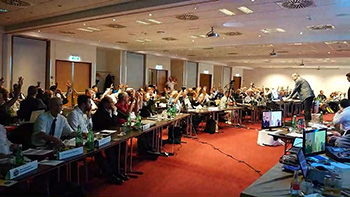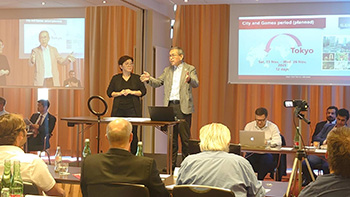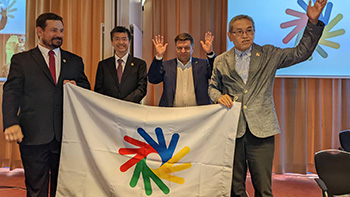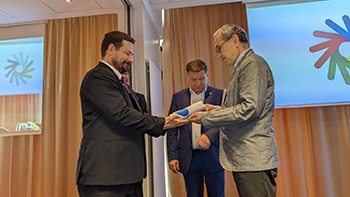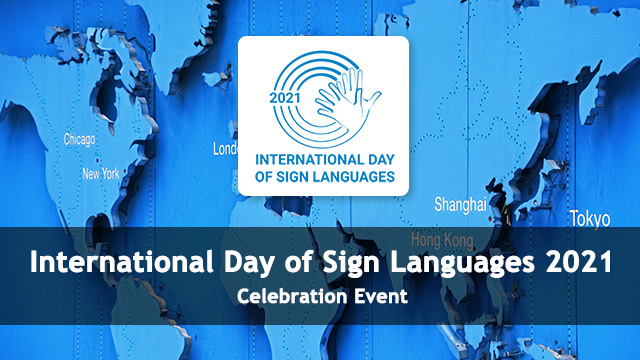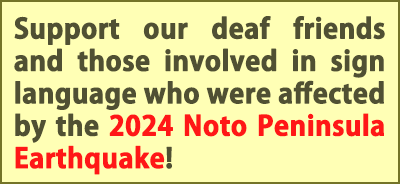to original Japanese version
On February 23, Tuesday, and a national holiday, the Japanese Federation of the Deaf (JFD) and the Japanese Deaf Sports Federation(JDSF) conducted the International Workshop of Deaf Sports. 17 national deaf sports associations and 3 international guests attended the meeting online. To secure the online information-communication guarantee, materials, subtitles, International Sign, and Japanese Sign language were displayed on the same screen, respectively at the left top, the bottom left, the right top, and the bottom right.
Mr. Martin Bogard, Chair of Technical Commission of the International Committee of Sports for the Deaf (ICSD), and Ms. Cathy Schelvis, Technical Director (TD) of the ICSD, reported the current situation of the ICSD and explained the roles and required services of the TDs. Then Yuji Okawa, the head of the Japan Deaf Volleyball Association (JDVA), presented their bidding plan for the World Deaf Volleyball Championships, and Mr. Mitsuji Hisamatsu, General Manager of the Deaflympics 2025 Bid Preparation Division, outlined their campaign to have the Deaflympic Games hosted by Japan.
In the last half of the meeting, a panel discussion was held coordinated by Mr. Yutaka Osugi, Chairperson of ICSD Reform Commission, with Mr. Mohammad Pargar, President of the Asia Pacific Deaf Sports Confederation (APDSC), from Iran, and Mr. Koji Takahashi, Chairperson of the Japan Deaf Football Association (JDFA) and a former TD of football at the APDSC.
During the Q & A Session, there were many questions on various topics, such as methods for selecting TDs at the ICSD, the standards for information-communication guarantee using flashing lights, or the future directions of the APDSC. The 3 guest speakers from overseas praised the elaborate preparation of the Workshop and the information-communication guarantee system, and the domestic deaf sports associations’ enthusiasm. Many participating associations stated that they would engage more in international activities, including serving TDs, to promote their sports area.
Continue reading →
